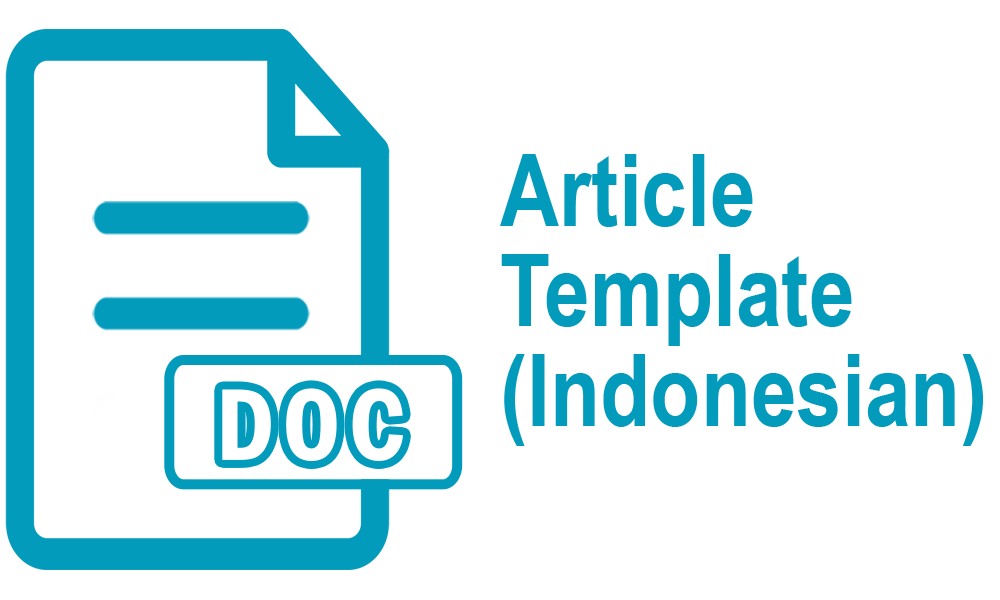THE WAY CHINESE-DESCENDENT MOTHERS TEACH CHINESE CULTURE AND THE PRESERVED TRADITIONS IN INDONESIAN-CHINESE MULTICULTURAL FAMILY: A REFLECTION THROUGH THE JOY LUCK CLUB BY AMY TAN
Abstract
Abstract
Since The Joy Luck Club mainly focuses on Chinese culture, it is acknowledged by people around the world that Chinese culture is rich with the values and history which influences every slide of world history. Although Chinese people are recently residing far away from mainland China, the cultural values they have learned before it will be remained within themselves. To uphold the cultural values and traditions within a Chinese-descendent family, the role of mother is needed. However, since most of the Chinese-descendent families live in multicultural neighborhood with the assimilated cultures—like Indonesia—it is unknown whether the Chinese cultural values and traditions are being preserved or not. This study is focused on the way Chinese-descendent mothers teach the Chinese culture and the preserved traditions of Chinese culture within the family. The mothers from The Joy Luck Club represent the role of Chinese-descendent mother in teaching the children the cultural values. These figures are reflected through the mothers in the two cities of Indonesia, Tarakan and Samarinda, as the representation. There are similarities and differences from the mothers from the novel and the two cities in Indonesia in nurturing the children with their cultural values. It comes from the way each mother teaches their cultural values, especially in teaching integrity and filial piety to the children with the mothers’ own method. Several Chinese cultures and traditions are mentioned and still preserved by the family, both in the novel and inside the Indonesian-Chinese mothers’ families. The Lunar New Year and Moon Festival are the examples of the preserved traditions within the family. The results of these studies will show how valuable the cultural values and traditions are and this study will give a further comprehension in preserving the cultural values within a family.
Key words: Chinese culture, Indonesian-Chinese, multicultural, The Joy Luck Club, Amy Tan
Abstrak
The Joy Luck Club berfokus pada kebudayaan Cina yang terkenal dengan kekayaan nilai luhur serta sejarahnya yang mempengaruhi sejarah dunia. Meskipun masyarakat Cina saat ini banyak yang bertempat tinggal di luar Republik Rakyat Cina (RRC), nilai budaya mereka dapatkan tetap terjaga. Untuk menjaga nilai kebudayaan dan tradisi di dalam keluarga berketurunan Cina, peran seorang ibu sangat dibutuhkan. Akan tetapi, karena sebagian besar keluarga berketurunan Cina tinggal di lingkungan multikultur dengan budaya yang telah terasimilasi—seperti Indonesia—kita tak mengetahui apakah nilai budaya dan tradisi yang telah dijaga tersebut masih bisa dilestarikan atau tidak. Penelitian ini berpusat pada cara para ibu berketurunan Cina mengajarkan nilai budaya Cina serta mencari tahu apa saja nilai kebudayaan Cina serta tradisi yang masih terjaga di dalam keluarga mereka. Para ibu dari novel The Joy Luck Club merepresentasikan peran mereka dalam mengajarkan nilai kebudayaan serta tradisi tersebut. Mereka akan dibandingkan dengan para ibu yang berasal dari dua kota di Indonesia, yaitu kota Tarakan dan Samarinda, sebagai contoh penelitian. Ada beberapa persamaan dan perbedaan yang didapatkan melalui para ibu dari novel dan dari kedua kota di Indonesia dalam mendidik anak-anaknya dengan nilai budaya tersebut. Hal itu tercermin dari cara setiap ibu mengajarkan nilai integritas dan berbakti kepada yang tua dengan cara mereka masing-masing. Ada beberapa nilai budaya dan tradisi Cina yang disebutkan dan masih dilestarikan oleh keluarga besar mereka, baik dari novel maupun dari dalam keluarga para ibu Indonesia-Cina. Perayaan Tahun Baru Imlek dan Sembahyang Bulan adalah beberapa dari sekian banyak tradisi yang masih terjaga di dalam keluarga Indonesia-Cina. Hasil penelitian ini akan menunjukkan betapa berharganya suatu nilai kebudayaan serta tradisi yang dijalankan serta memberikan pemahaman dalam menjaga budaya dan tradisi di dalam sebuah keluarga.
Kata kunci: kebudayaan Cina, Indonesia-Cina, multikultur, The Joy Luck Club, Amy Tan
Full Text:
PDFReferences
Anney, Vicent N. "Ensuring the Quality of the Findings of Qualitative Research: Looking at Trustworthiness Criteria." Journal of Emerging Trends in Educational Research and Policy Studies (JETERAPS) (2014): 272-281. Web. 16 February 2015.
Chang-Yau, Hoon. "Assimilation, Multiculturalism, Hybridity: The Dilemmas of Ethnic Chinese in Post-Suharto Indonesia." Asian Ethnicity 7.2 (2006): 149-166. Web. 26 March 2015.
Chao, Ruth and Vivian Tseng. "Parenting of Asians." Bornstein, Marc H. Handbook of Parenting. New Jersey: Lawrence Erlbaum Associates, Inc., 2002. 59-93. Web. 2 May 2015.
Childs, Peter and Fowler, Robert. The Routledge Dictionary of Literary Terms. New York: Routledge, 2006. Web. 26 March 2015.
Clifford, James. "On Collecting Art and Culture." The Cultural Studies Reader: Second Edition 1999: 57-76. Web. 05 March 2013.
Davis, Rocio G. "Wisdom (Un)Heeded: Chinese Mothers and American Daughters." C.I.F. 1993-1994: 94-100. Web. 05 March 2013.
During, Simon. The Cultural Studies Reader: Second Edition. New York: Routledge, 1999. Web. 05 March 2013.
Eagleton, Terry. Literary Theory: An Introduction. 2nd. Minnesota: The University of Minnesota Press, 2003. Web. 25 March 2015.
—. The English Novel: An Introduction. Oxford: Blackwell Publishing, 2005. Web. 25 March 2015.
Elo, Satu and Helyi Kyngas. "The qualitative content analysis process." Journal of Advanced Nursing (2008): 107-115. Web. 04 February 2015.
Fan, Ying. "A Classification of Chinese Culture." Cross Cultural Management (2000): 3-10. Web. 01 February 2015.
Fraenkel, Jack R., Wallen, Norman E. and Helen H.Hyun. How to Design and Evaluate Research in Education. 8th. New York: McGraw-Hill, 2012. Web. 30 September 2016.
Guba, Egon G. "ERIC/ECTJ Annual Review Paper: Criteria for Assessing the Trustworthiness of Naturalistic Inquiries." Educational Communication and Technology 29.2 (1981): 75-91. Web. 24 March 2015.
Guion, Lisa A., David C. Diehl, and Debra McDonald. "Triangulation: Establishing the Validity of Qualitative Studies." Department of Family, Youth and Community Sciences, Florida Cooperative Extention Service (2011): 1-3. Web. 25 March 2015.
Hake, Steve R. "Why Study Literature." (2001): 1-11. Web. 23 April 2015.
Hamilton, Patricia L. "Feng Shui, Astrology, and the Five Elements: Traditional Chinese Belief in Amy Tan's The Joy Luck Club." MELUS, Vol. 24, No. 2, Religion, Myth and Ritual (1999): 125-145. Web. 31 January 2015.
Huberman, A. Michael and Matthew B. Miles. "Data Management and Analysis Methods." Handbook of Qualitative Research. Ed. Norman K. Denzin and Yvonna S. Lincoln. 2nd. California: Sage Publications, Inc, 1994. 428-444. Print.
—. Qualitative Data Analysis: an Expanded Sourcebook. 2nd. California: Sage Publications, Inc, 1994. Print.
Hussein, Ashatu. "The use of Triangulation in Social Sciences Research: Can qualitative and quantitative methods be combined?" Journal of Comparative Social Work (2009): 1-12. Web. 31 January 2015.
Kellner, Douglas. "Cultural Studies, Multiculturalism, and Media Culture." (n.d.): 1-15. Web. 16 February 2015.
Li, Mengyu. "The Unique Values of Chinese Traditional Cultural Time Orientation: In Comparison with Western Cultural Time Orientation." Intercultural Communication Studies XVII.1 (2008): 64-70. Web. 01 February 2015.
Lim, Hermanto and Mead, David. Chinese in Indonesia: A Background Study. Survey Report. Indonesia: SIL International, 2011. Web. 26 March 2015.
Martinsons, Maris G. and Westwood, Robert I. "Management information systems in the Chinese business culture: An explanatory theory." Information & Management 32 (1997): 215-228. Web. 25 March 2015.
Miller, Toby. "What it is and what it isn't: Introducing... Cultural Studies." n.d. 1-19. Web. 16 February 2015.
Nelson, Cary, Treichler, Paula A., and Lawrence Grossberg. "Cultural Studies: An Introduction." Nelson, Cary, Treichler, Paula A., and Grossberg, Lawrence. Cultural Studies. New York and London: Routlegde, n.d. 1-16. Web. 16 February 2015.
Patton, Michael Quinn. Qualitative Evaluations and Research Methods. 2nd. California: Sage Publications, Inc, 1990. Print.
Rolfe, Gary. "Validity, trustworthiness and rigour: quality and the idea of qualitative research." Journal of Advanced Nursing (2006): 304–310. Web. 31 January 2015.
Rosado, Caleb. "Toward a Definition of Multiculturalism." (1996): 1-12. Web. 05 March 2013.
Schultermandl, Silvia. "Transnational Matrilineage: Mother-Daugher Conflicts in Asian-American Literature." Contributions to Transnational Feminism. Ed. Erin and Silvia Schultermandl Kenny. Vol. 1. n.d. 72-100. Web. 05 March 2013.
Shenton, Andrew K. "Strategies for ensuring trustworthiness in qualitative research projects." Education for Information 22 (2004): 63-75. Web. 31 January 2015.
Stake, Robert E. "Case Studies." Handbook of Qualitative Research. Ed. Norman K. Denzin and Yvonna S. Lincoln. 2nd. California: Sage Publications, Inc., 1994. 236-247. Print.
Stephanchuk, Carol and Charles Wong. Mooncakes and Hungry Ghosts: Festivals of China. San Fransisco: China Books & Periodicals, 1991. Web. 09 June 2016.
Tan, Amy. About Amy Tan. n.d. Web. 27 February 2015.
—. The Joy Luck Club. New York: Penguin Books, 1989. Print.
The Chinese Culture Connection. "Chinese Values and the Search for Culture-Free Dimensions of Culture." Journal of Cross-Cultural Psychology 18.2 (1987): 143-164. Web. 24 March 2015.
Tyas, Dyah Ayuning. Psychoanalysis of Characters in Amy Tan’s The Joy Luck Club. Samarinda: Mulawarman University, 2013. Print.
Wellek, Rene and Warren, Austin. The Theory of Literature. New York: Harcourt, Brace and Company, 1949. Web. 24 March 2015.
DOI: http://dx.doi.org/10.30872/jbssb.v1i2.678
Refbacks
- There are currently no refbacks.
Copyright (c) 2017 Amalia Pratiwi, Surya Sili, Erna Wati
Editorial address:
Fakultas Ilmu Budaya, Universitas Mulawarman
Jl. Ki Hajar Dewantara, Gunung Kelua, Kec. Samarinda Ulu, Kota Samarinda, Kalimantan Timur, Indonesia 75123
Email: jurnalilmubudaya.fibunmul@gmail.com
Website: http://e-journals.unmul.ac.id/index.php/JBSSB
Ilmu Budaya: Jurnal Bahasa, Sastra, Seni, dan Budaya is licensed under a Creative Commons Attribution-ShareAlike 4.0 International License






